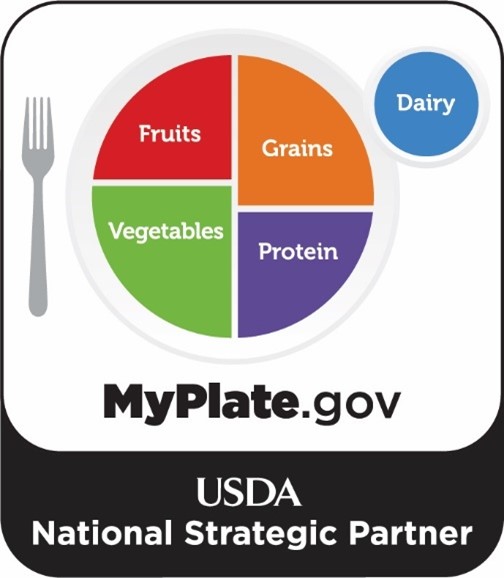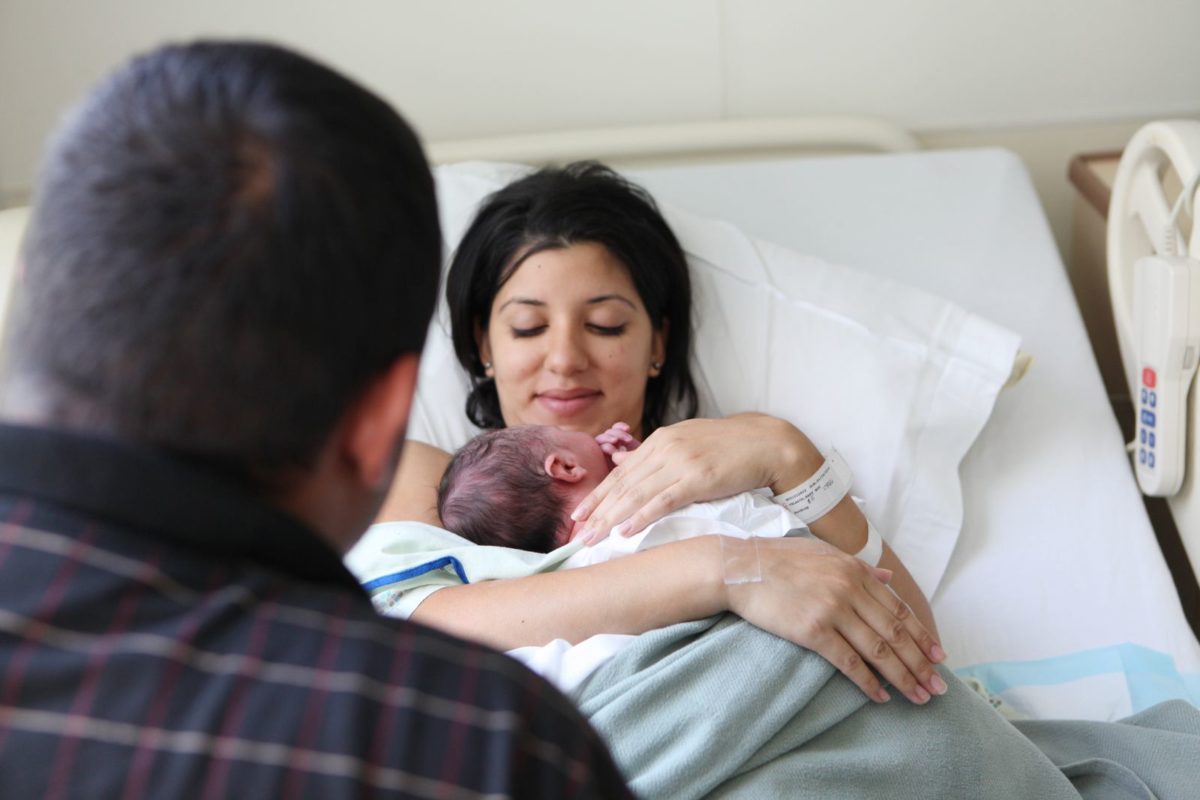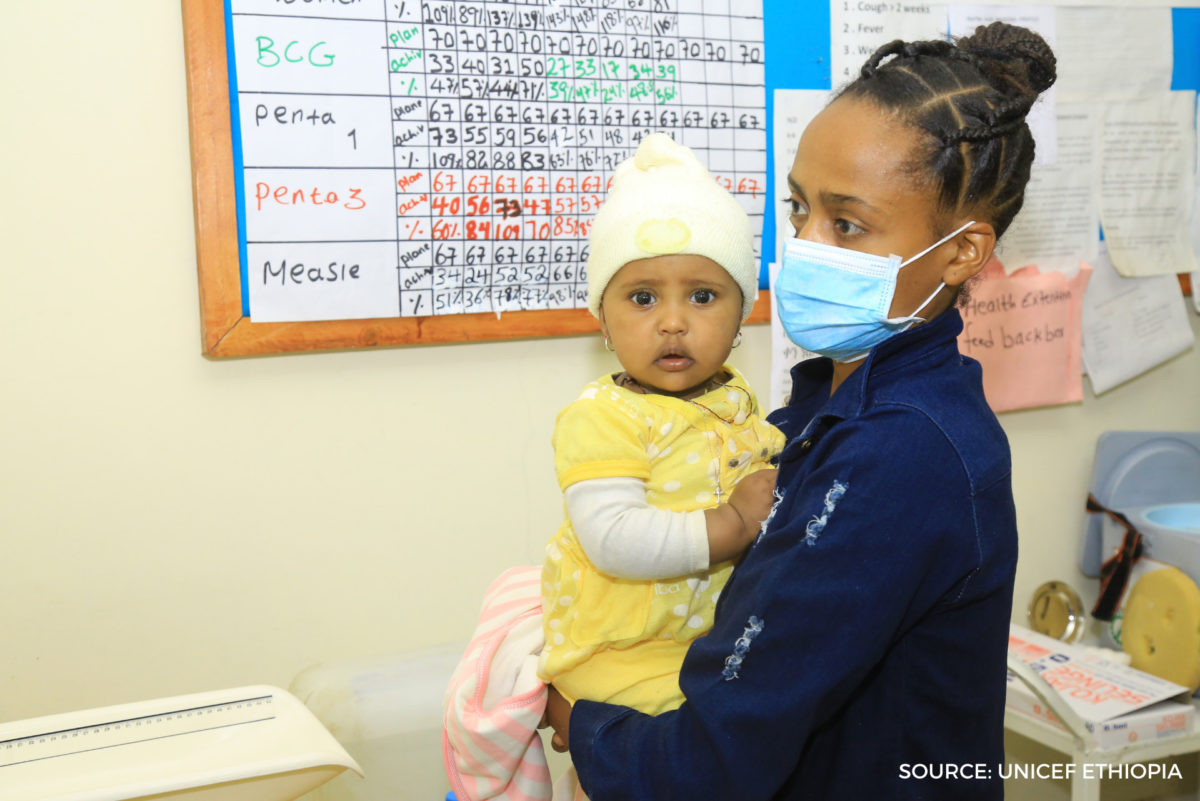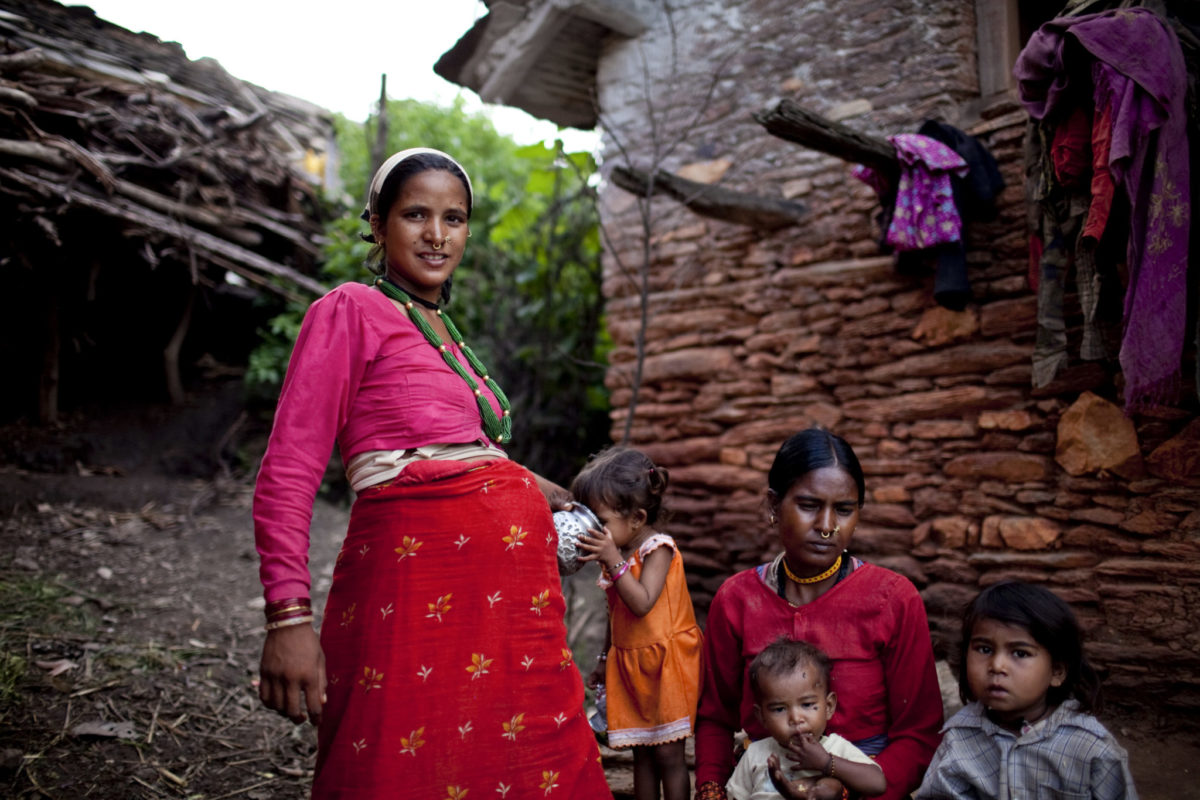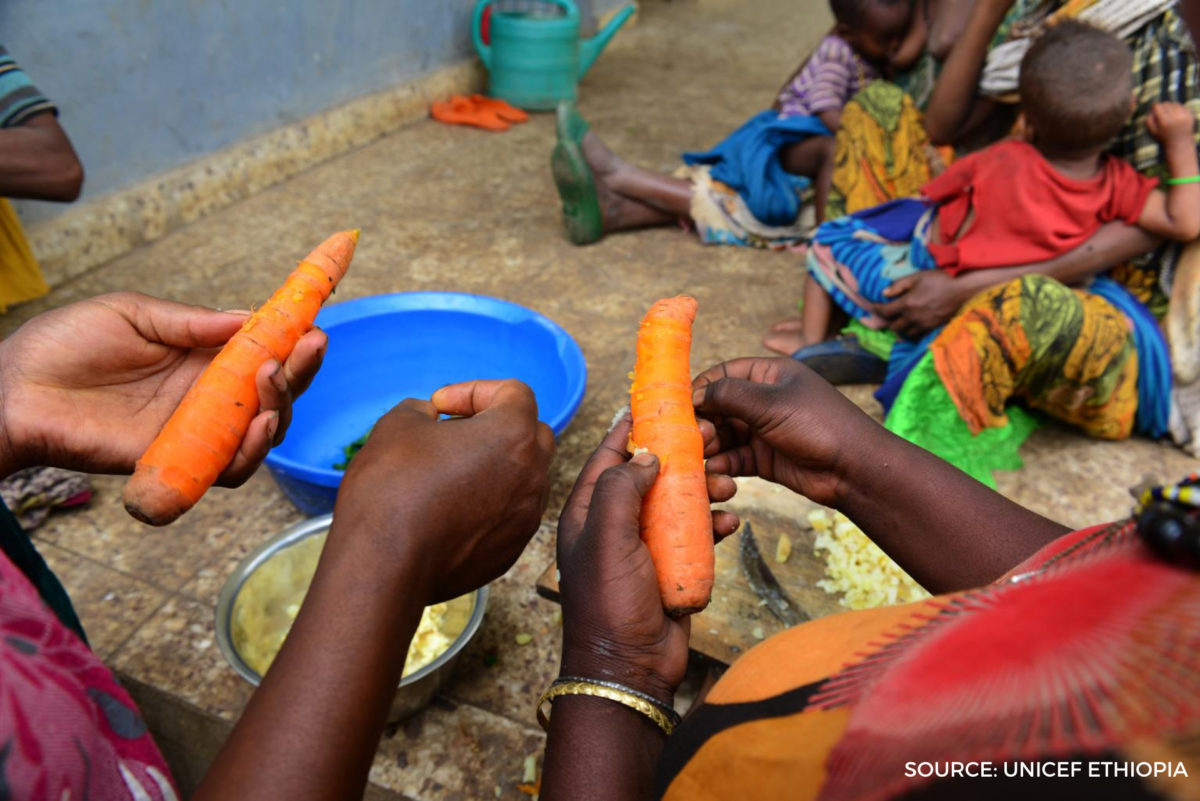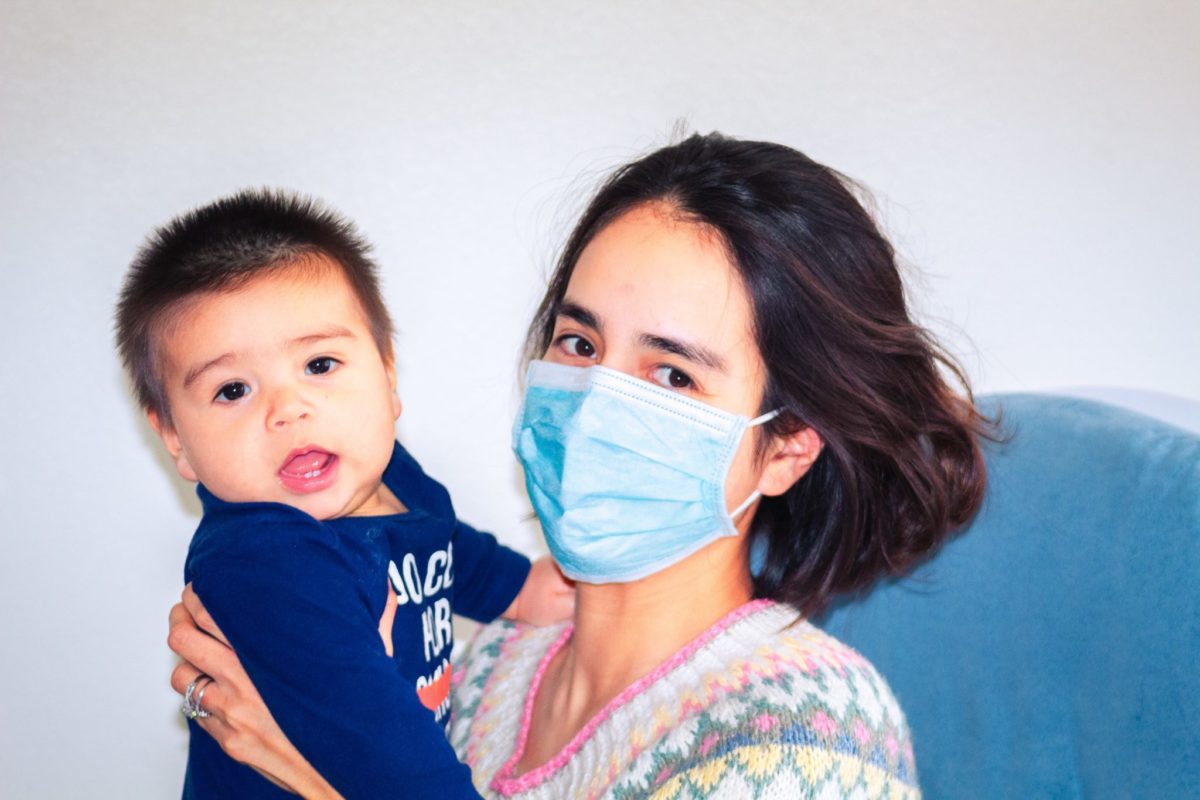This blog was originally published by the Global Nutrition Report.
By: Emma Feutl-Kent, Global Policy & Advocacy Manager, 1,000 Days and Atalanti Moquette, Founder of Giving Women
How are malnutrition and women’s health, education, and economic participation connected? And why is nutrition so central to women’s empowerment?
Addressing malnutrition in women is essential to mitigating the impacts of Covid-19 and creating conditions that enable women’s empowerment. International Women’s Day provides an opportunity to reflect on progress made to date in the struggle for women’s rights as well as the challenges that still need to be addressed to promote gender equality.
This blog explains why investing in nutrition is a vital, yet underutilised, tool in the struggle for women and girls’ empowerment.
Malnutrition in women is being worsened by the impacts of Covid-19
Before the Covid-19 pandemic took hold, Dulali Begum had established a thriving poultry business in Bangladesh, securing a steady income for her family. After Covid-19 spread to her community, Dulali was eventually forced to sell her business at a loss, leaving her unable to afford enough food. Thousands of miles away in New Orleans, fear of exposure to Covid-19 has kept Chrishana Simon off buses and forced her to turn to the only foods available within walking distance – processed and canned foods that don’t provide enough nutrients for her or her family.
Around the world, countless women could tell similar stories. The Covid-19 virus itself has been especially deadly to men. But women have borne the brunt of the pandemic’s long-lasting and deadly knock-on effects. This is especially so when it comes to the rapid global increase in hunger and malnutrition over the last year.
The growing number of people experiencing food and nutrition insecurity is likely to exacerbate the already large gender gap in rates of malnutrition. Even before the pandemic, women and girls faced multiple obstacles that prevented them from accessing healthy, nutritious food. These factors contribute to women being 9.3% more likely to be underweight and 36% more likely to be obese than men – a gap which is widening for both underweight and obesity. Now, as food insecurity worsens across the globe, women and girls are at increased risk of hunger and malnutrition, often eating last and least in their households when food is scarce.
Disruptions to food and health systems because of Covid-19 are causing rates of malnutrition to rise substantially. By the end of 2020, severe food insecurity will have risen by 82% compared to pre-Covid numbers and in many parts of the world, malnutrition will kill more people than the Covid-19 virus itself. Women are disproportionately at risk.
Women’s empowerment can’t be achieved without addressing malnutrition
The Covid-related spike in food insecurity for women and girls is especially significant because good nutrition is not only a fundamental right, but also a key tool in the struggle for women and girls’ empowerment.
The positive effects of access to good nutrition, especially in the first 1,000 days of life, pay dividends to both individuals and society. While gender equality and women’s empowerment are associated with improved child nutrition, early childhood nutrition also contributes to a generation of strong and healthy women.
Three ways in which nutrition promotes gender equality
- Improved health outcomes
Good nutrition can protect girls even before they are born. Well-nourished infants and toddlers catch fewer and less serious cases of diarrhoea, malaria, pneumonia, and a host of other diseases. As they grow, they are less vulnerable to obesity and non-communicable diseases such as diabetes. Good nutrition is also key to healthy pregnancies and reproductive health. Women who are well nourished during pregnancy are far less likely to join the 810 women who die from preventable causes related to pregnancy and childbirth every day, and more likely to give birth to children who will thrive.
- Increased attainment in education
Access to good nutrition allows girls’ brains to develop fully and impacts how well women and girls can perform in school. The physiological impact of nutrition is astronomical – children who remain well-nourished have up to an 18-point higher IQ than their malnourished peers. Girls who are well-nourished do better in school and stay in school longer, which can lead to them marrying later, having fewer children and increasing their earning potential.
- Greater economic participation
Malnutrition has a huge impact on a woman’s employment prospects. For example, children who are well nourished are 33% more likely to escape poverty as adults, while anaemia, a condition that overwhelmingly impacts women, reduces women’s physical and mental capacity to perform their work. Malnourished girls also tend to complete less school, which places barriers on their ability to obtain high-paying jobs. Small interventions such as supplying pregnant women with prenatal vitamins, can make a huge difference to their financial security and economic empowerment.
What needs to change to support the struggle for gender equality and deal with the impacts of Covid-19?
Better nutrition is a cost-effective way to provide women with important tools to support their efforts to claim equal rights. Positive steps in this direction are already being taken with a growing number of countries adopting feminist foreign policy agendas and advocates calling for feminist Covid-19 response plans.
Now we must ensure that these agendas and responses put good nutrition for women and girls front and centre. Not doing so will dramatically increase the death toll from the pandemic and set a generation of women up for poor health, stunted cognitive development, and lower earning potential.
2021 is a key year for nutrition. The Year of Action on nutrition will culminate in the December Tokyo Nutrition for Growth Summit. This offers a chance for governments and other key stakeholders to come to the stage and show the world that they are committed to nutrition – and to the futures of women and girls everywhere.
Now more than ever, nutrition interventions are critical to making concrete and long-lasting improvements to the status of women and girls around the world. We all have a role to play in encouraging our governments, companies, civil society and multilateral organisations to commit to improving nutrition. A generation of women depends on it.
*The views and opinions expressed in this article are those of the authors alone and do not represent the official position of the Global Nutrition Report or associated individuals, institutions and organisations, unless explicitly stated.
Read 1,000 Days’ report, Nourishing Gender Equality: How Nutrition Interventions are an Underleveraged Tool in the Fight for Women’s Rights, to find out more.
This blog was also published as an op-ed on Sci Dev Net.

